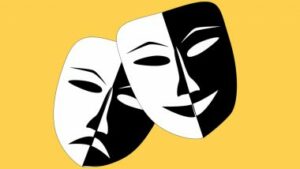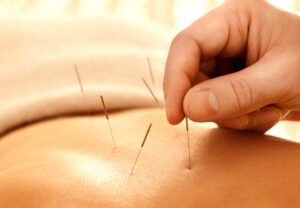If you are one of the millions of people who suffer from bipolar disorder, you know how difficult it can be to manage your symptoms. There are many prescription medications available to help treat bipolar disorder, but they often come with unwanted side effects. In this blog post, we will discuss 10 natural remedies that are effective in treating bipolar disorder.
Contents
- 1 What Is Bipolar Disorder?
- 2 What Are Natural Remedies For Bipolar Disorder?
- 2.1 1. Omega-3 Fatty Acids
- 2.2 2. S-Adenosyl-L-Methionine (SAMe)
- 2.3 3. St. John’s Wort
- 2.4 4. N-Acetylcysteine (NAC)
- 2.5 5. Lithium
- 2.6 6. Inositol
- 2.7 7. Acupuncture
- 2.8 8. Yoga
- 2.9 9. Exercise
- 2.10 10. Sleep
- 2.11 11. Herbal supplements
- 2.12 12. Massage
- 2.13 13. Accupressure
- 2.14 14. Aromatherapy
- 2.15 15. Relaxation Techniques
- 2.16 16. Probiotics
- 3 Conclusion
What Is Bipolar Disorder?

Bipolar disorder is a mental illness that is characterized by extreme changes in mood. People with bipolar disorder can swing from feeling very happy and exhilarated to feeling very sad and hopeless, often within a matter of hours or days. This condition used to be known as “manic depression.”
Bipolar disorder is not simply a case of “mood swings.” The mood changes associated with bipolar disorder are much more severe and can have a profound effect on a person’s ability to function in day-to-day life.
Bipolar disorder affects both men and women, but the symptoms may be different in each gender. Men with bipolar disorder are more likely to experience manic episodes that are characterized by impulsive and risky behavior, while women are more likely to experience depressive episodes.
While there is no cure for bipolar disorder, it is possible to manage the condition with medication and therapy. In some cases, natural remedies may also be helpful.
What Are Natural Remedies For Bipolar Disorder?

Natural remedies for bipolar disorder are treatments that do not involve medications. Some people with bipolar disorder may feel that medications prescribed by their doctor are not effective, or they may have side effects from these medications that make them difficult to tolerate. Others may simply prefer to avoid taking medication if possible. There is a growing interest in natural remedies for bipolar disorder, as well as other mental health conditions.
While there is no one-size-fits-all approach to treating bipolar disorder, some people find that natural remedies help to relieve symptoms and improve their quality of life. The following are some natural remedies that have been studied for their potential role in the treatment of bipolar disorder:
1. Omega-3 Fatty Acids
Omega-3 fatty acids are a type of healthy fat found in fish, nuts, and seeds. Some research suggests that omega-3 fatty acids may help to relieve symptoms of bipolar disorder. One study found that people with bipolar disorder who took omega-3 supplements had fewer depressive episodes than those who did not take omega-3 supplements. These Omega-3s seem to work by helping to decrease inflammation in the brain.
2. S-Adenosyl-L-Methionine (SAMe)
SAMe is a naturally occurring compound that is involved in many biochemical reactions in the body. Some research suggests that SAMe may help to relieve symptoms of bipolar disorder. One study found that people with bipolar disorder who took SAMe supplements had fewer depressive episodes than those who did not take SAMe supplements. These SAMe supplements seem to work by helping to increase levels of serotonin, a chemical messenger in the brain that is linked to mood.
3. St. John’s Wort
St. John’s wort is a plant that has been used for centuries to treat a variety of conditions. Some research suggests that St. John’s wort may help to relieve symptoms of bipolar disorder. One study found that people with bipolar disorder who took St. John’s wort had fewer depressive episodes than those who did not take St. John’s wort. It is thought that St. John’s wort works by increasing levels of serotonin in the brain.
4. N-Acetylcysteine (NAC)
NAC is a compound that is involved in many biochemical reactions in the body. Some research suggests that NAC may help to relieve symptoms of bipolar disorder. One study found that people with bipolar disorder who took NAC supplements had fewer depressive episodes than those who did not take NAC supplements. It is thought that NAC works by helping to decrease inflammation in the brain.
5. Lithium
Lithium is a naturally occurring element that has been used for centuries to treat bipolar disorder. Some research suggests that lithium may help to relieve symptoms of bipolar disorder. One study found that people with bipolar disorder who took lithium had fewer depressive episodes than those who did not take lithium. It is thought that lithium works by helping to stabilize mood swings.
6. Inositol
Inositol is a type of sugar that is involved in many biochemical reactions in the body. Some research suggests that inositol may help to relieve symptoms of bipolar disorder. One study found that people with bipolar disorder who took inositol had fewer depressive episodes than those who did not take inositol. It is thought that inositol works by helping to stabilize mood swings.
7. Acupuncture

Acupuncture is a traditional Chinese medicine technique that involves inserting thin needles into the skin at specific points on the body. Some research suggests that acupuncture may help to relieve symptoms of bipolar disorder. One study found that people with bipolar disorder who received acupuncture had fewer depressive episodes than those who did not receive acupuncture. It is thought that acupuncture works by helping to regulate mood swings.
8. Yoga
Yoga is an effective way to manage stress and improve mental well-being. A study published in the journal Frontiers in Psychiatry found that yoga can help reduce symptoms of bipolar disorder.
Many types of yoga can be helpful for people with bipolar disorder. Some yoga poses that may be particularly beneficial include:
-Child’s pose: This pose can help to calm the nervous system and ease anxiety.
-Downward facing dog: This pose can help to increase energy and reduce stress.
-Warrior I: This pose can help to build strength and confidence.
9. Exercise

Exercise has many benefits for physical and mental health. Some research suggests that exercise may help to improve symptoms of bipolar disorder. One study found that people with bipolar disorder who participated in aerobic exercise had fewer depressive episodes than those who did not exercise. Some of these benefits may be because exercise can help to reduce stress and improve sleep.
Some of these exercises are:
- Hiking
- Running
- Cycling
- Swimming
10. Sleep
Getting enough sleep is important for physical and mental health. Furthermore, Some research suggests that people with bipolar disorder who have sleep problems may benefit from treatment with sleep medication. One study found that people with bipolar disorder who took sleep medication had fewer depressive episodes than those who did not take sleep medication.
Some tips for getting better sleep include:
- Stick to a regular sleep schedule.
- Avoid caffeine and alcohol before bed.
- Create a relaxing bedtime routine.
- Limit screen time before bed.
11. Herbal supplements
Many herbal supplements have been traditionally used to treat bipolar disorder. Some of these herbs include:
Lavender: Lavender has been shown to reduce anxiety and improve sleep quality. This herb can be taken in capsule form or used in aromatherapy.
Ginkgo biloba: This herb is thought to improve blood circulation and cognitive function. It is available in capsules or as a liquid extract.
12. Massage
Massage therapy has many benefits for physical and mental health. Some research suggests that massage may be helpful for people with bipolar disorder. One study found that people with bipolar disorder who received massage therapy had fewer depressive episodes than those who did not receive massage therapy.
13. Accupressure
Another form of alternative medicine, accupressure is said to help treat a variety of conditions, including headaches, anxiety, and nausea. However, Some research suggests that accupressure may be helpful for people with bipolar disorder. One study found that people with bipolar disorder who received accupressure had fewer depressive episodes than those who did not receive accupressure.
14. Aromatherapy

Aromatherapy is the use of essential oils to promote physical and psychological well-being. Furthermore, Some research suggests that aromatherapy may be helpful for people with bipolar disorder. One study found that people with bipolar disorder who received aromatherapy had fewer depressive episodes than those who did not receive aromatherapy.
15. Relaxation Techniques
Relaxation techniques are a type of complementary and alternative medicine (CAM) that can help to reduce stress and promote relaxation. Some research suggests that relaxation techniques may be helpful for people with bipolar disorder. One study found that people with bipolar disorder who used relaxation techniques had fewer depressive episodes than those who did not use relaxation techniques.
Some relaxation techniques that may be helpful for people with bipolar disorder include:
Progressive muscle relaxation: This technique involves tensing and then relaxing different muscle groups in the body.
Deep breathing: This technique involves taking slow, deep breaths to help relax the body and mind.
16. Probiotics
Food is not only necessary for physical health, but it can also impact mental health. Some research suggests that certain foods may be helpful for people with bipolar disorder. One study found that people with bipolar disorder who ate a healthy diet had fewer depressive episodes than those who did not eat a healthy diet.
Some foods that may be beneficial for people with bipolar disorder include:
Magnesium
This mineral is found in dark leafy greens, nuts, and seeds. Furthermore, Magnesium is necessary for many biochemical reactions in the body and is thought to be involved in the regulation of mood.
Vitamin B
Another important vitamin for people with bipolar disorder is vitamin B. This vitamin is important for many different things in the body, including the nervous system, energy levels, and mood. Research has shown that people with bipolar disorder often have lower levels of vitamin B than people without the condition. Taking a supplement can help to improve symptoms.
5-HTP
5-HTP is a compound that is involved in the production of serotonin, a neurotransmitter that helps to regulate mood. However, Low levels of serotonin are linked to depression, so increasing levels may help to improve symptoms. 5-HTP supplements are available over the counter and some studies have found them to be effective for treating bipolar disorder.
Vitamin D
Vitamin D is a vitamin that is necessary for many things in the body, including bone health and the immune system. Also, Vitamin D is thought to be involved in the regulation of mood. Research has found that people with bipolar disorder often have lower levels of vitamin D than people without the condition. Taking a supplement can help to improve symptoms.
These are just some of the natural remedies that have been traditionally used to treat bipolar disorder. It is important to speak with a healthcare professional before starting any new treatment, especially if you are taking medication for bipolar disorder.
Conclusion
Natural remedies for bipolar disorder can be very effective. If you are considering using any of these remedies, it is important to speak with your doctor first to ensure they are safe for you to use. There are many natural remedies available and each person may respond differently to each one. Furthermore, it is important to find the right combination of remedies that work best for you.
Some of these natural remedies may take time to work, so it is important to be patient and consistent with your treatment. However, With the proper treatment, many people with bipolar disorder can lead happy and healthy lives.
Hope this article was of help to you! If you are suffering from mental health disorders, you may seek help from Therapy Mantra. We have a team of highly trained and experienced therapists who can provide you with the tools and skills necessary for overcoming mental health disorders. Contact us today to schedule an online therapy or download our free Android or iOS app for more information.


